This Thai Brown Sauce is a rich and flavorful blend that brings together the perfect balance of sweet, salty, and umami flavors. Infused with soy sauce, rice vinegar sauce, and a hint of garlic, it’s a versatile condiment that can elevate stir-fries, noodles, or grilled meats. Simple to prepare, this sauce adds a deep, authentic taste to any dish, making it a staple in Thai cuisine.
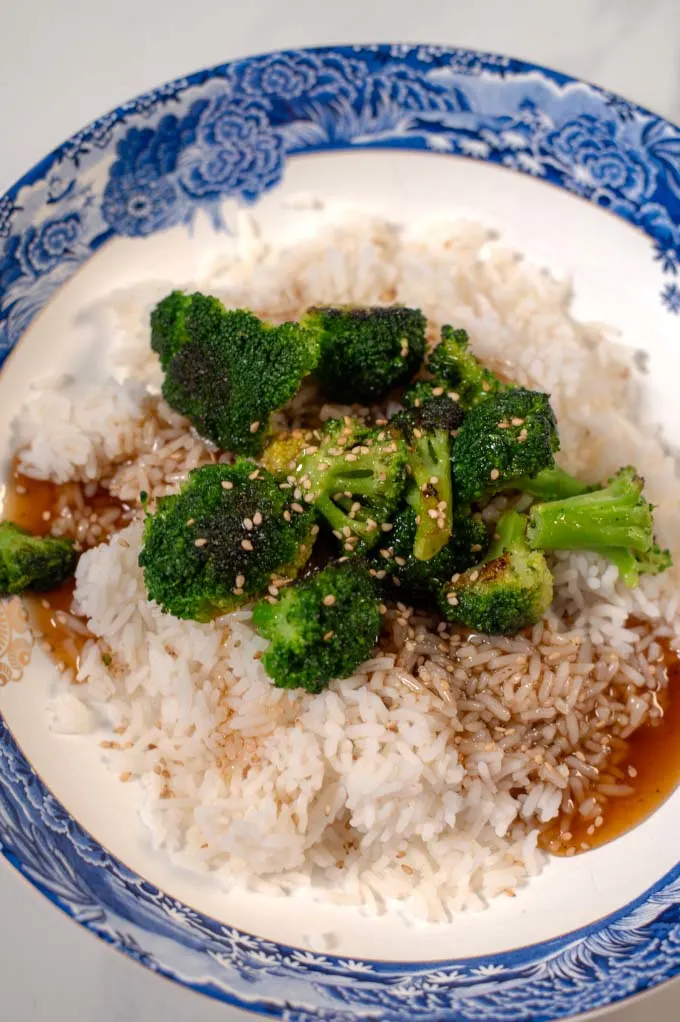
What is Thai Brown Sauce?
Thai brown sauce is a savory and versatile condiment commonly used in Thai cuisine, particularly in stir-fries, noodles, and grilled dishes.
It typically consists of a base of soy sauce and oyster sauce, with additional ingredients like garlic, sugar, and sometimes fish sauce to create a balanced blend of sweet, salty, and umami flavors.
The sauce is known for its rich, deep taste and is often used to enhance the flavors of various meats, vegetables, and tofu in Thai dishes.
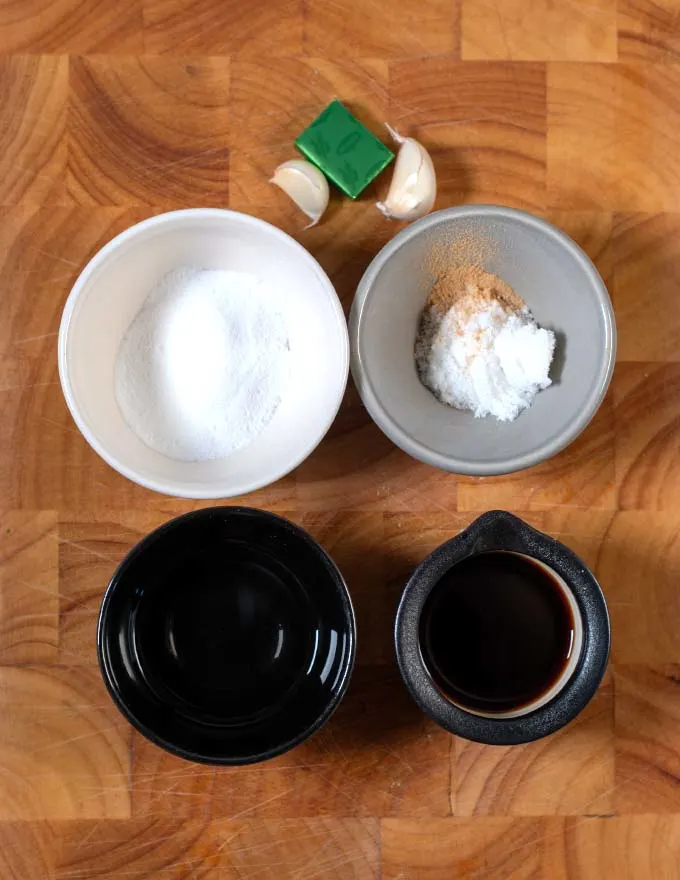
What ingredients go into this Thai Brown Sauce
A staple in many Asian cuisines, soy sauce is made from fermented soybeans, wheat, water, and salt. It provides a deep umami flavor with a salty, slightly sweet taste.
There are different types of soy sauce, such as light and dark, with dark soy sauce being thicker and sweeter, often used to add color to dishes.
A flavorful liquid made by simmering vegetables, herbs, and spices, vegetable broth serves as a base in many dishes, adding depth without overwhelming the other ingredients. It’s often used as a substitute for water in sauces, providing an additional layer of savory flavor.
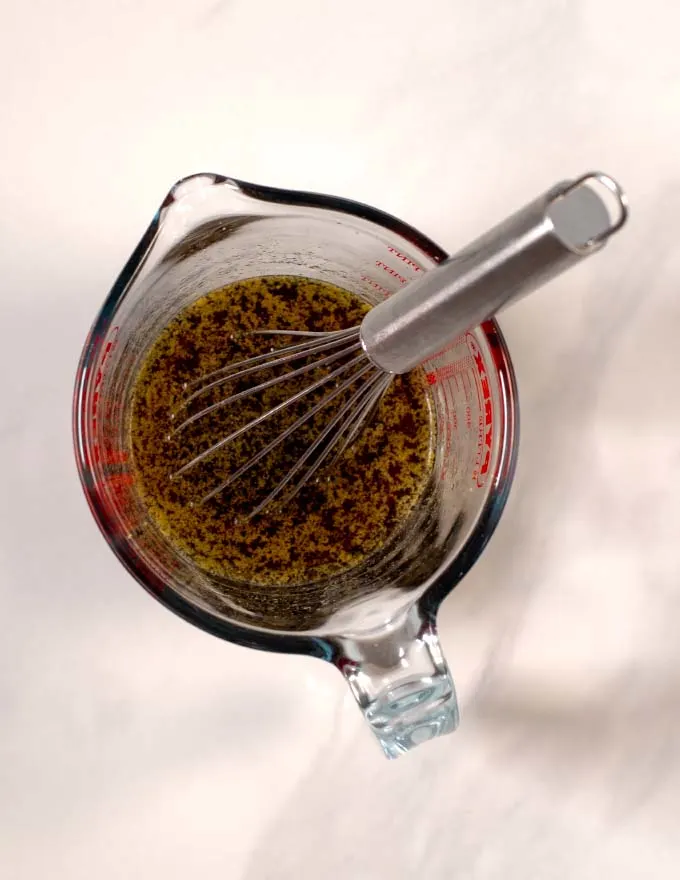
A pungent and aromatic ingredient, garlic is a cornerstone in many cuisines, including Thai cooking. It adds a sharp, spicy flavor when raw and a mellow sweetness when cooked. Garlic enhances the overall flavor profile of the sauce with its bold taste.
Made from fermented rice, rice vinegar is milder and sweeter than most other vinegars. It adds a subtle acidity to the sauce, balancing the saltiness and sweetness, and helps to enhance the other flavors.
Sugar is used to add a touch of sweetness that balances the salty and tangy elements of the sauce. In Thai cuisine, palm sugar is often used for its rich, caramel-like flavor, but regular white or brown sugar can also be used.
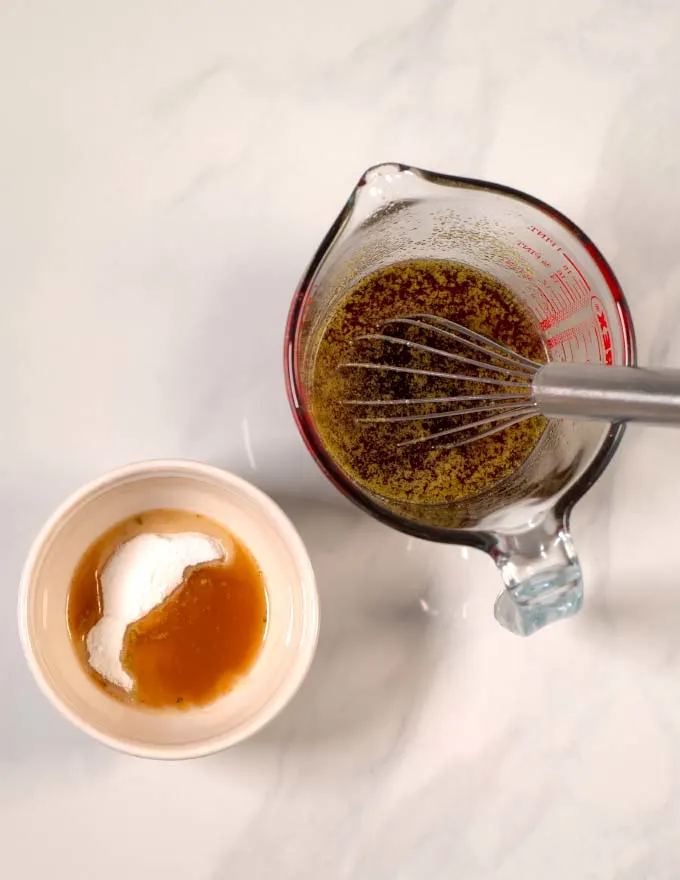
A fragrant root with a spicy, slightly sweet flavor, ginger is commonly used in Thai cooking. It adds warmth and complexity to the sauce, as well as a fresh, zesty note that complements the garlic and soy sauce.
Cornstarch is a thickening agent that, when mixed with a liquid, helps sauces achieve a smooth, velvety texture. It’s often used in small amounts to give the sauce a glossy finish and to help it cling to the ingredients in the dish.
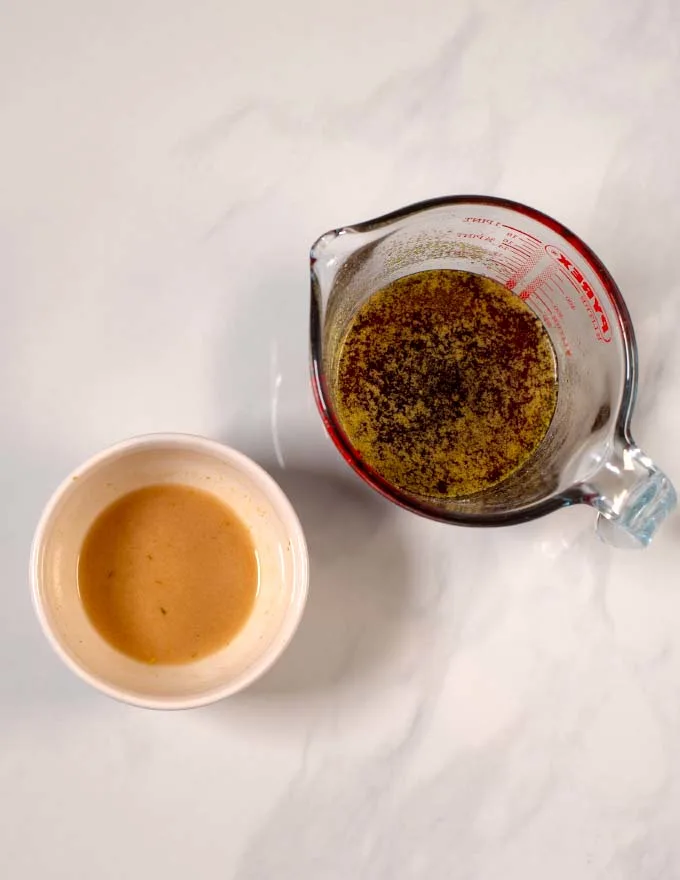
How to make Thai Brown Sauce?
For mkaing Thai Brown Sauce, you will need a small mixing bowl and a small saucepan as equipment.
First, in the mixing bowl, combine soy sauce, vegetable broth, garlic, rice vinegar, sugar and ginger. Whisk everything well together.
Transfer the mixture to the saucepan, but keep 1-2 tbsp in the mixing bowl. Give the cornstrach to it and again whisk all well together to make a cornstarch slurry.
Heat the mixture in the sauce pan. When it simmers, reduce heat, and stir in the cornstarch slurry. Let the sauce thicken, then set aside and enjoy.
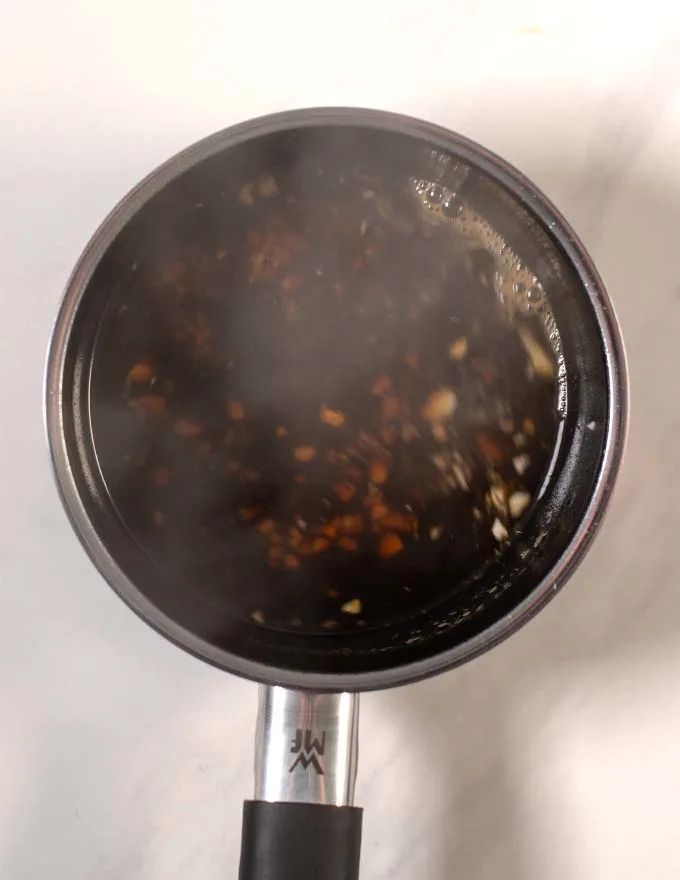
Popular Uses of Thai Brown Sauce
- Thai brown sauce is often used as a base for stir-frying vegetables, meats, or tofu. It provides a rich, savory flavor that ties all the ingredients together.
- Noodle Dishes: It can be added to dishes like pad see ew or stir-fried noodles, giving the noodles a flavorful coating that enhances the dish’s overall taste.
- The sauce works well as a marinade for meats, especially chicken, beef, or pork, infusing them with deep umami flavors before grilling or roasting.
- Thai brown sauce can be served as a dipping sauce for spring rolls, dumplings, or grilled skewers, offering a flavorful complement to the food.
- Sauce for Rice Dishes: Drizzling the sauce over steamed rice or mixing it with fried rice adds a delicious savory note, making it an easy way to enhance a simple meal.
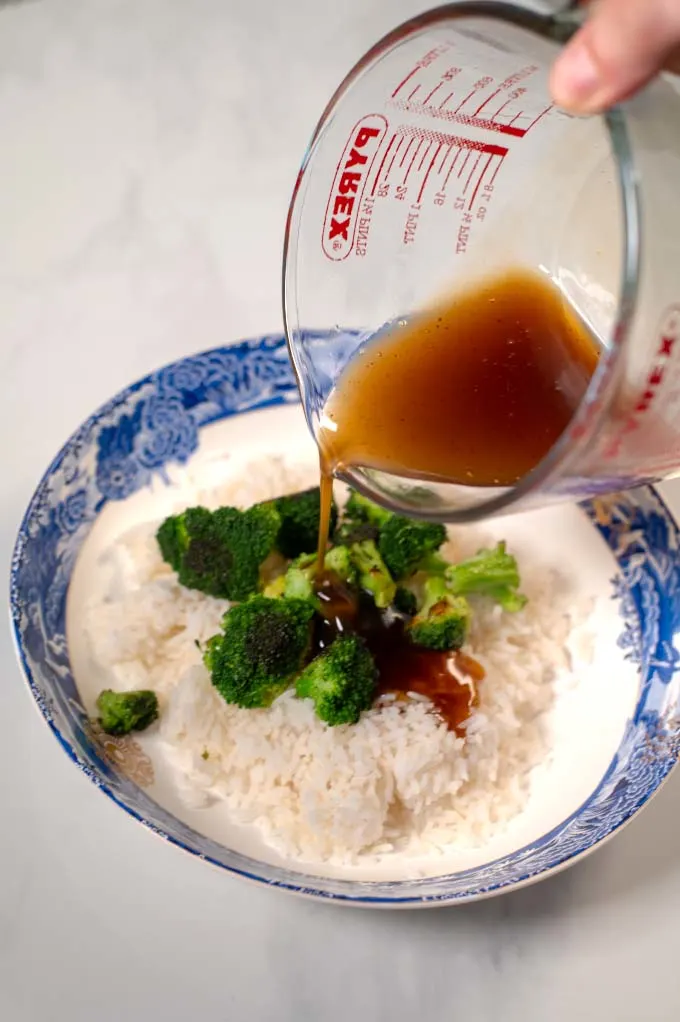
Variations
Here are some possible variations of Thai brown sauce to suit different tastes and dietary preferences:
- Spicy Thai Brown Sauce: Add chili paste, fresh Thai chilies, or Sriracha for a spicy kick. This variation is perfect for those who enjoy a bit of heat in their dishes.
- Increase the amount of sugar or add a touch of honey or palm sugar to create a sweeter version. This is ideal for balancing spicy or tangy flavors in dishes.
- Replace regular soy sauce with tamari or a gluten-free soy sauce alternative to accommodate those with gluten sensitivities.
- Citrus-Infused Thai Brown Sauce: Add a splash of lime juice or zest to give the sauce a bright, tangy flavor that pairs well with seafood or light vegetable dishes.
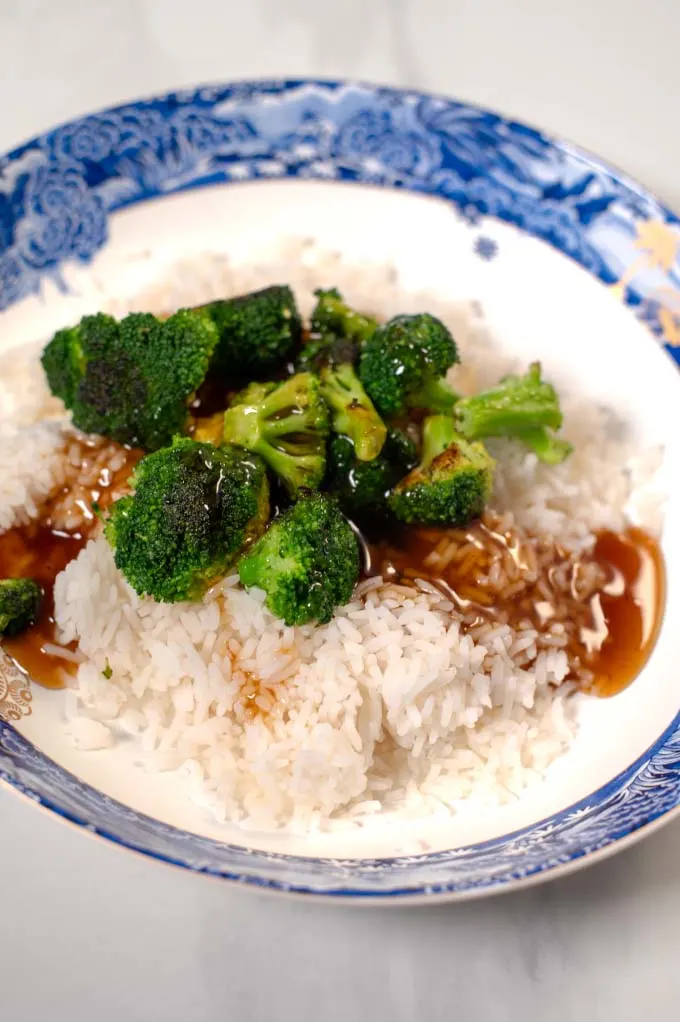
Other sauce recipes to try
- Stir Fry Sauce
- Homemade Japanese White Sauce Recipe
- Easy Vietnamese Peanut Sauce Recipe for Dipping
- Carolina BBQ Sauce
- Best Nashville Hot Sauce Recipe [vegan, super easy]
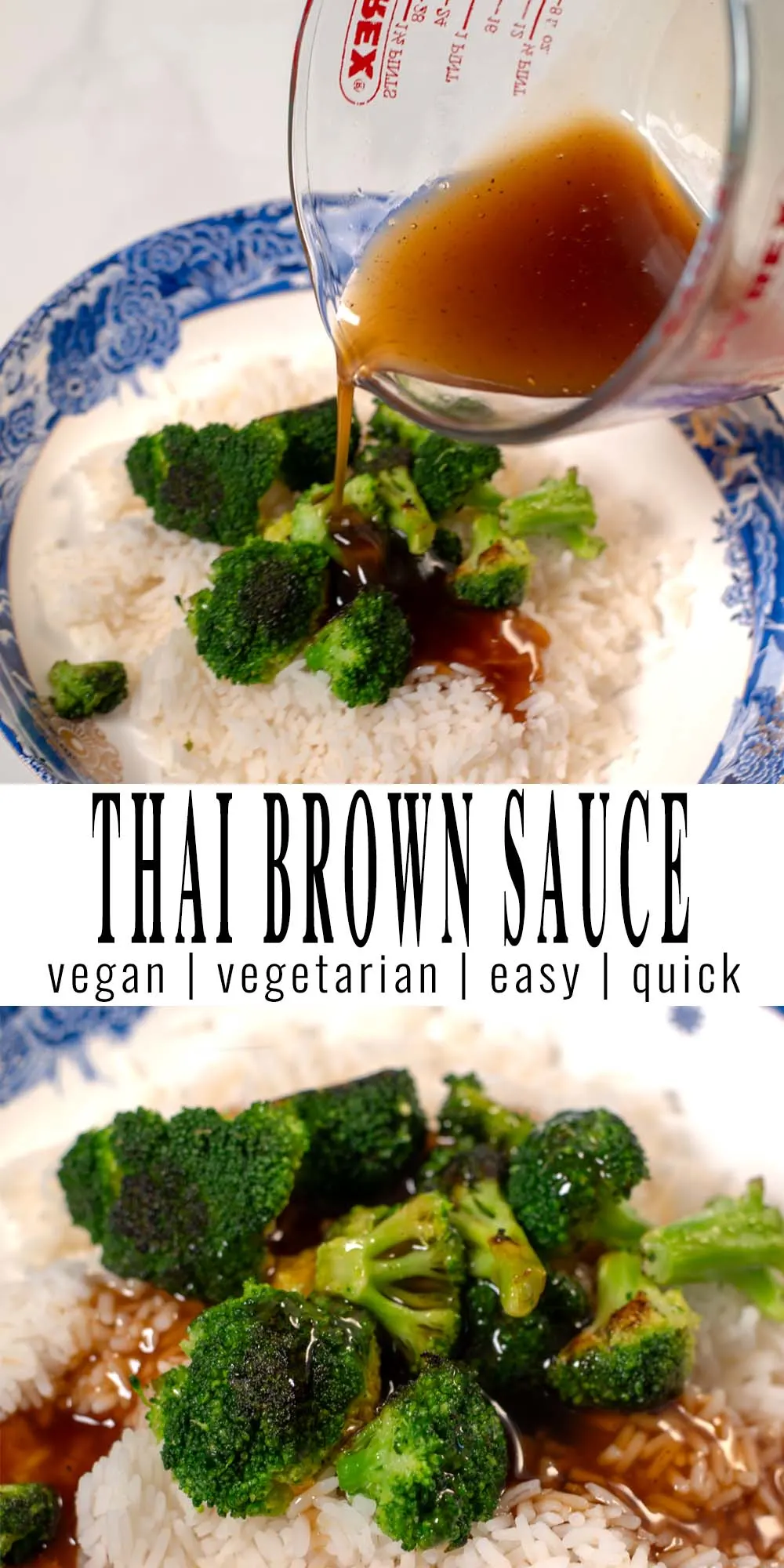
I hope you enjoy making and savoring this flavorful Thai brown sauce as much as I do!
If this recipe adds a delicious twist to your favorite dishes, I’d love to hear about it. Please leave a comment with a star rating below, and don’t forget to share your creations on Facebook and Instagram with a tag. Your feedback and photos make my day!
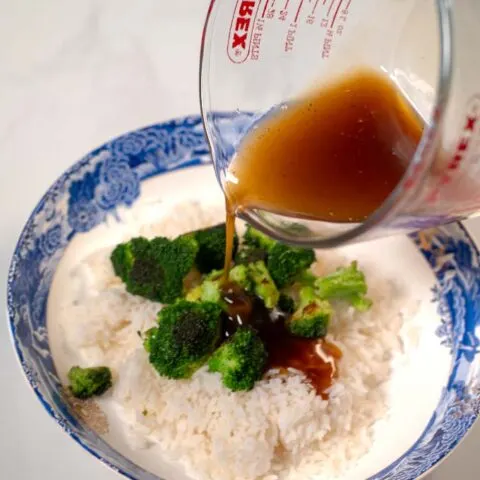
Easy Thai Brown Sauce Recipe
This Thai Brown Sauce is a rich and flavorful blend that brings together the perfect balance of sweet, salty, and umami flavors. Infused with soy sauce, rice vinegar sauce, and a hint of garlic, it’s a versatile condiment that can elevate stir-fries, noodles, or grilled meats. Simple to prepare, this sauce adds a deep, authentic taste to any dish, making it a staple in Thai cuisine.
Ingredients
- 3 tbsp soy sauce
- 1/2 cup vegetable broth
- 2 cloves garlic, pressed
- 2 tbsp rice vinegar
- 2 tsp sugar
- 1/2 tsp ginger
- 3 tbsp cornstarch
- salt, and pepper to taste
Instructions
- For making Thai Brown Sauce, you will need a small mixing bowl and a small saucepan as equipment.

- First, in the mixing bowl, combine soy sauce, vegetable broth, garlic, rice vinegar, sugar and ginger. Whisk everything well together.

- Transfer the mixture to the saucepan, but keep 1-2 tbsp in the mixing bowl. Give the cornstrach to it and again whisk all well together to make a cornstarch slurry.

- Heat the mixture in the sauce pan. When it simmers, reduce heat, and stir in the cornstarch slurry. Let the sauce thicken, then set aside and enjoy.

Nutrition Information:
Yield: 4 Serving Size: 3 tbspAmount Per Serving: Calories: 43Total Fat: 0gSaturated Fat: 0gTrans Fat: 0gUnsaturated Fat: 0gCholesterol: 0mgSodium: 817mgCarbohydrates: 9gFiber: 0gSugar: 2gProtein: 1g

GilB561
Monday 10th of March 2025
3 Tbsp of cornstarch in the printed recipe is excessive for little more than a 1/2 cup of liquids. Are you sure it's not supposed to be 3 tsp?
Florian
Monday 10th of March 2025
Hi there! The amount of cornstarch is correct, because you really want to have a thicker sauce in the final result. You can always use less cornstarch according to your preferences. Therefore, keep in mind you get a remarkable thinner sauce. Hope that helps and clarifies. Let me know what you think.